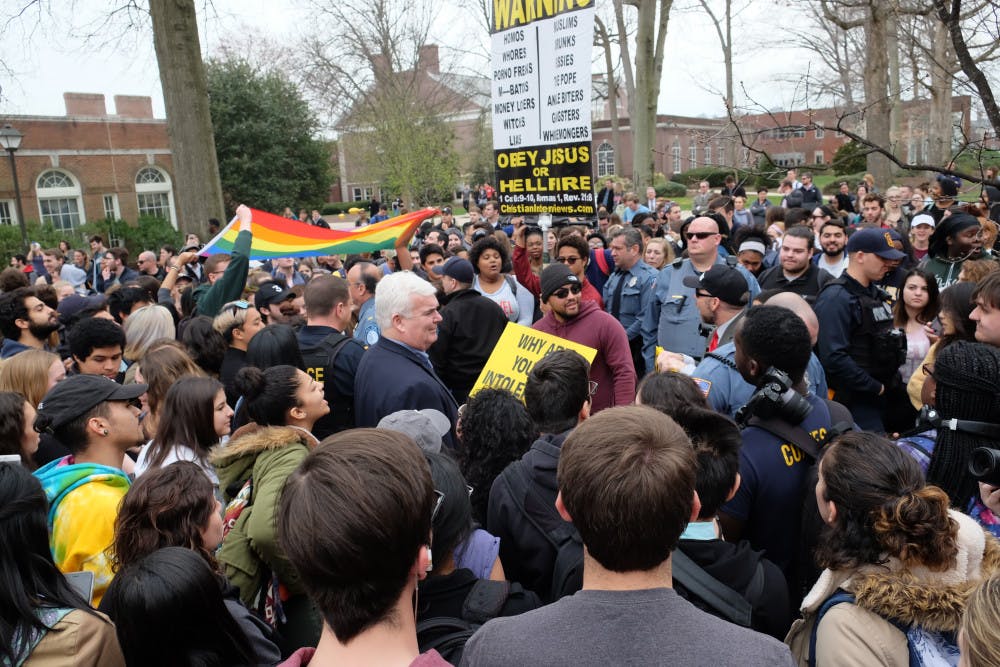Dear Editor:
The recent campus visits from the group calling itself “Bible Believers” demonstrated not only hate speech but also an but erroneous way to read the Bible.

We are faculty members who takes turns teaching the English Department’s course “The Bible as Literature” (LIT 340), and we and our students know the Bible as an anthology of texts written over a period of centuries by numerous authors living in cultures remote from ours. The result is a document filled with diverse voices, varied stories and sometimes conflicting opinions. If we suppress any of them, we change the document, as did early translators when they changed Junia’s name to the masculine “Junias” in Romans 16:7, because they were scandalized at the idea of a female being “of note among the apostles.”
Rather than believe wrongly that the Bible is filled with hate for others, the campus community should become directly familiar with this ancient document in which God speaks to a female Egyptian slave, King David and Prince Jonathan love one another “with a love surpassing the love of women” (2 Samuel 1:26), two Africans (one in the Hebrew Bible/Old Testament and one in the New Testament) are portrayed as faithful to God despite having had operations altering their sexual identity, prophets’ consistent prophesy against the sinfulness of the wealthy who despise and mistreat the poor and outcast and Mary’s prophetic words about God overthrowing the powerful. In addition to hearing suppressed voices, the campus should read passages that they have all too often heard as contributions to hate speech (for instance, the story of Sodom and Gomorrah) — but read them in context. They should read about the complicated relationships between the sons of Abraham (the ancestors of the Jewish and Muslim peoples) and the promise that the nation of Israel would be a blessing to “the nations.” They should read about the tension between early Christians and some of the Jewish people of the time, while understanding that Jesus and his first followers were all Jewish.
The Bible is often cited in political discourse, but in misleading ways. In order to become better informed, and thus better able to participate and shape the discourse, we should all become more familiar with this text.
Sincerely,
Jean Graham
Professor and Associate Chair of English
Glenn Steinberg
Professor and Chair of English







